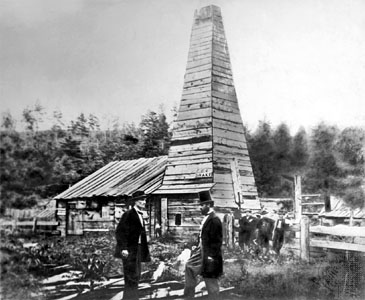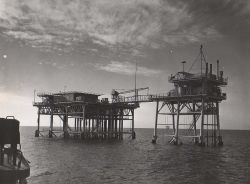- HubPages»
- Books, Literature, and Writing»
- Books & Novels»
- Nonfiction»
- Biographies & Memoirs
The Prize, The History of Oil, Money and Power

The commodity that redefined politics, engineering, and culture
Anyone who cannot remember the price of gasoline ever being below $2/gallon has probably lived in a time when the Middle East was always considered an area of immense wealth and power. It might be hard to imagine, but it was not that long ago when Middle East oil producing states were some of the poorest in the world. In fact, as late as WWII, the United States was the top oil producer in the world, which helped not only its own development but also single handedly helped the Allies win what was supposed to be the final world war. The history of oil and the impact it has had in the world in every way, from politics, to country conflicts, to corporate structures is profound. The Prize by Daniel Yergin is a comprehensive story of how oil became more than just a commodity, oil has and continues to change the course of civilization.
Image Credit: Heartland Energy Colorade

Oil, the liquid that changed civilization
The Prize, by Daniel Yergin, takes on the colossal task of documenting the history of oil and the role it has had in the evolution of the world and human population since it was first discovered in the late 1880s. One of the most remarkable aspects for me was how oil has played a major role in virtually every global event since the early 1900s, not to mention the creation of modern corporations. Not only have wars been caused by oil, but several times the results were decided not by manpower or weapons but by this mysterious liquid from underground. Oil went rapidly from being an unknown resource to the leading factor in foreign policy and economic expansion. How this all took place in such a short period of time is the subject of The Prize that artfully guides the reader from various perspectives of every region around the globe from the 1880s to 2001.
The history begins in the United States when Edwin Drake took on the laughable task of drilling for a substance that no one wanted in Pennsylvania. To realize that only a hundred years ago there was no known use for oil makes the financial venture to drill for oil all the more impressive. But, like many great inventions or discoveries, once found it caught on like a wildfire. Soon Pennsylvania was the scene of a mad rush for drilling, refining and distribution, partly fueled by the spreading the fever of fast and easy money. This sets the stage for the world's first multi-state corporation and largest trust, John Rockefeller's Standard Oil. His view was to create a vertical corporation which could manage production, refinement, distribution, and sales that would periodically over the next hundred years seem to be the most and then least efficient way of running an oil business. However, in those early days, this vertical business model created an efficiency and stability that was tremendously beneficial for the development of a new resource. This theme of stability would be one that Yergin touches on several times. As it turns out many times crises were not caused by actual shortages of oil, but on the fear of potential shortages. This fear is unfortunately the leading cause for not just company actions but also country actions usually involving the military.
With the popularity of this new discovery, countries around the world began to drill for oil to gain a piece of the prosperity. These countries included Mexico, Venezuela, Russia, even in limited locations areas in Europe. But still a vast majority came from the United States. When WWI came about there was a vast build-up of not only armed forces but on building a superior navy throughout Europe. Traditionally navies were powered by coal, which is plentiful around the world, yet extremely time and manpower consuming to transport as well as to use on a ship. The shift to oil allowed for much faster load times for ships, and led to the creation of submarines with much more flexibility in fighting leading to fearfully impacting results. Tremendous amounts of time went into the discussions on the benefits and fears of transitioning one of the largest navies in the world, the British navy, from coal, which was extremely plentiful at home, to oil where they would be beholden to other countries. Yet the technological benefits outweighed home security and thus the transition began. Although oil was just starting to be used during WWI, it was decisive in a number of areas beside the navy including its use in the critical invention during trench warfare, that of the tank. Soon armies began to plan their campaigns around where they could obtain oil, even planning invasion strategies to line up with oil reserves or production locations. To say the world had shifted on its axis was an understatement, now former super powers like England, France and Germany were dependent on relatively young countries like the Unites States, Mexico and Venezuela for a critical security resource.
After the experiences of WWI, countries realized the criticality of oil and began to make basic plans for how to secure this resource in cases of emergencies. Some, like England, built partially country owned companies who could be called upon to provide oil to military services of a country before their other clients. Others like Japan and Germany began to look for expansion opportunities to secure home fields they could control. This began the early run-ups to what ultimately led to the Second World War. While Germany had multiple motivations for its role, Japan was solidly looking for raw materials that it saw as critical to its survival. Looking at rich deposits in relatively close proximity including Indonesia and Philippines was too tempting to resist. Pearl Harbor was a daring attempt to put the US out of the war while they moved forward with their material acquisition plan. It was a daring move that almost succeeded except at the end of the day, the United States had home oil while Japan did not. That single factor more than any other would turn the tide.
So important was oil during WWII that there are several instances where armies and navies had to stop entire campaigns due to lack of oil (as compared to manpower or munitions). The blockade of oil from Japan, which had no home oil resources, actually grounded much of their navy toward the later part of the war. In fact it was so bad that they sent some battleships out with only enough oil to make it to the battle on the assumption that once they ran out they would use their ship as a final weapon. For Germany, Rommel's conquest of the Middle East was days away from complete victory when he ran out of oil needed to power his tanks. His army literally grounded to a halt in the middle of the desert and had to concede to the United States. Throughout this world event, the United States provided much of the oil needed to fight. Out of the total usage by the Allies of 7 billion barrels of oil, the United States produced and supplied 6 billion of them. Clearly this put the United States in the drivers seat both during and after the war to help dictate strategy and priorities.
Following the war there was concern with oil companies and even political leaders in the United States that while the United States was blessed with oil, diversification would be critical moving forward. What would happen when there was no more home oil? Since 1901 when William D'Arcy was able to convince the Persian government to let him look for oil (they were originally hoping for water) the Middle East had slowly started to dabble in the oil business. However, it was not until after WWII when the huge repositories in Iran, Saudi Arabia and Kuwait were discovered (ironically one of which right where Rommel's army got stranded for lack of oil). This began the second shift in world power with these new countries over the next 50 years learning how to use their resources as a revenue tool at certain times and a weapon in others. Thinking back to those early days of Rockefeller who was able to control prices by controlling supply helped lay the foundation for OPEC to try and do the same for oil producing countries (versus the companies that helped ship and market the oil). Arguments as to how much to produce, who should own the resources (the country or the company who took on the risk of discovery), who should set the prices (the country or the companies) would shift back and forth until as late as the 1980s. But with any resource with large profits attached, the potential rewards drive entrepreneurs to find more ways to engage and thus has made the ability of any one group or country to control impossible. Yet today we still see the power that key countries like Libya, Iran, Saudi Arabia and Kuwait achieve due to this single resource and the criticality it plays in every country's economic development. Oil continues to be a powerful tool that will have broad reaching political implications well into the next century.
To even write a summary of Yergin's epic historical view is incredibly challenging as oil has had not only tremendous historical life, but also political, economic and technological ones. This story while at times can be a bit tedious and on rare occasion repetitive; the ultimate narrative is interesting and informative. It certainly helps to demystify some of the emotions that can be seen in modern Middle Eastern leaders and conflicts towards western powers. As new resources become key global commodities in the field of electronics, it would benefit many to understand how arguable one of the most impactful resources to modern country development affected global history. This book will take some time to get through but it will be well worth it.

Favorite Quotes
"A wise old owl lived in an oak,
The more he saw the less he spoke,
The less he spoke, the more he heard,
Why aren't we all like that old bird?"
"Do not hesitate for one second to be in opposition to your colleagues or in overriding their decisions. No business can be permanent success unless its head is an autocrat--of course the more disguised by the silken glove the better" -- Sir Weetman Pearson
"He was the last prime minister to believe Britain was a great power and the first to confront a crisis which proved she was not" London Times of Anthony Eden during the crisis in Suez canal
"The American is a funny person. He worships the result of things that are big, economies of scale, mass production, but he hates anything that is big and powerful, and the oil industry is seen as the biggest and most powerful industry." Clifton Garvin, chairman of Exxon






